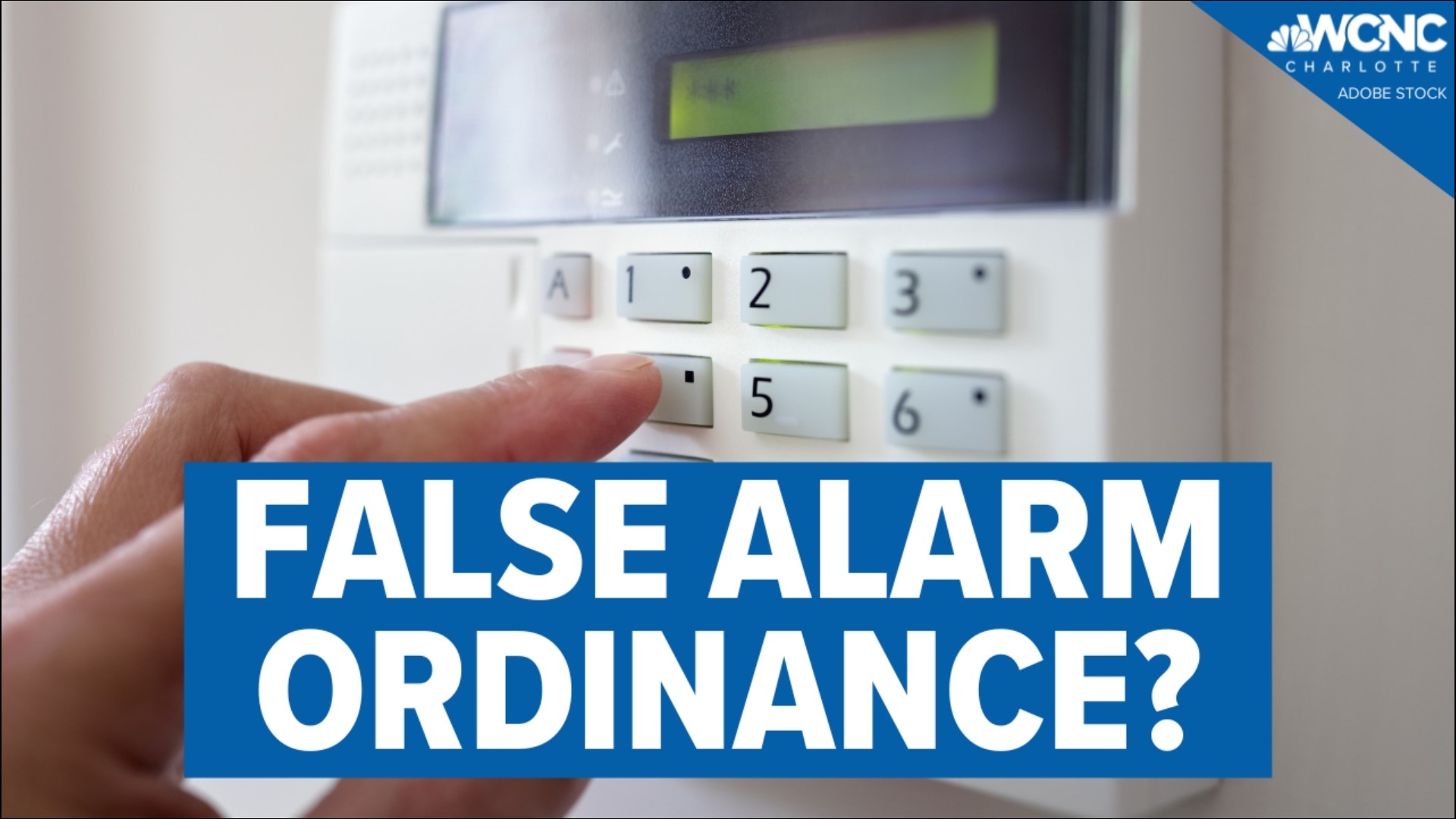GASTONIA, N.C. — Falsely triggered alarm systems plague law enforcement agencies across the nation. In Gastonia, the police chief wants an ordinance passed that will reduce the number of dispatches to false alarms, but security experts disagree with the method.
Gastonia Police Chief Trent Conard explained to city council Tuesday night that false alarm calls are wasting police resources when the department is already stretched thin. A study done by the Gastonia Police Department found that 99% of alarm calls officers were dispatched to in 2021 did not have a threat.
So, Chief Conard is pushing for security companies to verify threats before calling the police.
“We’re not saying we won’t respond," Conard said. "We’re just saying we’d like the alarms to be verified and they can be verified in three ways: audio, video, or on scene."
Conard pointed to a 2006 national study by Sonitrol, which says verified responses reduce alarm dispatches by an average of 72%.
However, security system experts argue it’s unsafe.
"With verified response, average citizens will become first responders, putting their lives in danger," Tommy Whisnant told city council Tuesday night. He referred to the scenarios where someone would have to go to their business or home to check to see if there is an intruder before police are dispatched.
Whisnant is president of the North Carolina Security and Low Voltage Association and works for CPI Security. He suggested Gastonia follows what Charlotte-Mecklenburg uses instead.
“The model ordinance focuses on addressing the relatively small number of alarm sites that generate the majority of false alarms rather than placing burdens on citizens trying to protect their properties,” Whisnant explained.
CMPD uses a third-party service to track security systems in the county and fines people for repeated false alarms, generating revenue for the department.
This approach, the model ordinance, is endorsed by the National Sheriff’s Association and the International Association of Chiefs of Police.
According to the Security Industry Alarm Coalition, it reduces alarm dispatches by 60%.
Conard doesn’t agree with the model ordinance because he said it would cost the city to implement.
“We’re going to have to have staff to monitor this, to bill, to keep up with who owes money, to cancel their alarms, cancel our responses," Conard argued. "There's still an extra burden that would be placed on us."
The Security Industry Alarm Coalition says out of about 18,000 law enforcement agencies, 2,000 use the model ordinance and about 13 use the verified response ordinance.
A Gastonia City Councilmember said they will, "proceed with caution," and research the issue more with the Public Safety Committee before making any decisions.
Contact Julia Kauffman at jkauffman@wcnc.com and follow her on Facebook, Twitter and Instagram.

